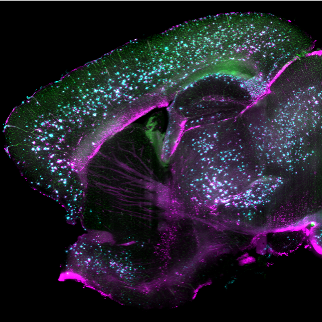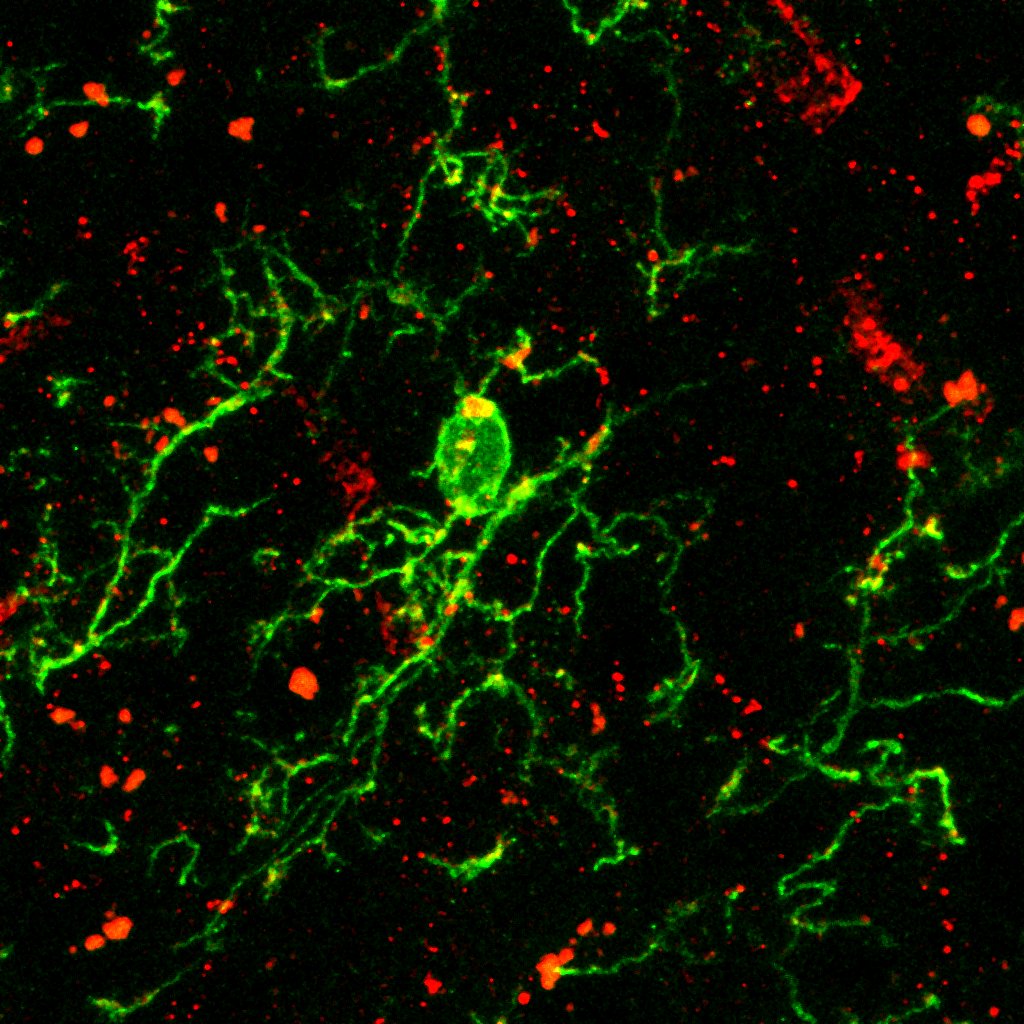

- wenqiang.chen@joslin.harvard.edu
- wenqiang.chen.01@regionh.dk
Publications
Here I will introduce what I have achieved in the past. But there are more ongoing works to be updated.
"There are in fact two things, science and opinion; the former begets knowledge, the latter ignorance."Hppocrates (460-377BC)
(1) Research papers
Single-cell investigations on disease stages
Most of the work here are coming from my first postdoc training in the Yi Zhang lab, where I was working on several projects in a highly collaborative environments:
- Project 1: reveal molecular heterogeneity underlying the brain reward systems (mPFC, NAc, and VTA)
- Project 2: characterize Set1da in schizophrenia pathogenesis.
- Project 3: characterize a dopamine neuron highly expressed protein in drug addiction (unpublished).
Some key figures:
- 2021, Nature Neuroscience, Figure 1, showing the major cell populations in the NAc
- 2022, Science Advances, Figure 6, showing the behavioral deficits in setd1a+/- mice (which I performed all the behavioral tests in this study)
- 2019, Nature Communications, Figure 1, showing the major cell populations in the PFC
- 2019, Nature Communications, Figure 6, showing how chronic cocaine IVSA alters transcriptional profiles in PFC cell types (which I contributed to the cocaine IVSA and provided the brain materials for scRNA-seq)
- 2022, Science Advances, Figure 1, showing Tac2-expressing MSN cells exhibited different responses to cocaine IVSA
Front-page images showing my co-first and co-author papers from the Ronald Kahn lab (02/2017 – 10/2019). All the papers are related to single-cell investigation of brain diseases (substance abuse and schizophrenia).
Role of Glial insulin signaling in AD pathogenesis
This is from my second postdoc training in the Ronald Kahn lab, where I mainly work on two glial cell types (astrocyte and microglia) and how they are involved in AD pathogenesis:
- Project 1 (iGIRKO/5xFAD): reveal astrocyte-specific insulin signaling in AD pathogenesis
- Project 2 (MGIRKO): reveal microglia-specific insulin signaling in health and in diseases
- Project 3 (MGIRKO/5xFAD): reveal microglia-specific insulin signaling in AD pathogenesis
- Project 4 (MG-DKO): reveal microglia-specifid insulin and IGF-1 signaling in health and in diseases
Front-page images showing my first author papers from the Ronald Kahn lab (10/2019 – ). All the papers are related to glial insulin signaling in AD pathogenesis.
Identification of dmPAGTac2 Neurons in aggression
In this collaborative project, where I serve as the co-corresponding author, we have provided evidence demonstrating the unique role of a molecularly distinct cell type, dmPAGTac2+ neurons, that regualte mouse aggressive behaviors.
The paper was published by Theranostics (IF = 12.4) in January 2025.
- we have identified a molecular distinct cell type in the dmPAG that regulates aggression;
- we have provided the first characterization of dmPAGTac2 cells during aggression;
- we have revealed that dmPAGTac2 cells are not only necessary, but also sufficient for aggression;
- we have shown that the 5-HT systems in dmPAGTac2 cells respond to aggression.
Important figures showing the main key points of the dmPAGTac2 project (02/2018 – ). To support earlier sharing and open science, we have submitted the main manuscript to bioRxiv: https://www.biorxiv.org/content/10.1101/2023.10.19.562724v2.
Previous Graduate Training (M.Sc. & Ph.D.)
I was trained to be an in vivo system neuroscientist, mainly working on using rodent models to study human brain disorders. During my previous graduate training, I was working on several exciting projects, including the following
- Project 1: establishing chlorpyrifos-induced rat model of mood disorders.
- Project 2: using agmatine to treat substance addition (morphone, etc)
- Project 3: revealing the role of GABAergic transmission during a critical period for spatial nagivation
Front-page images showing my first-author and co-author papers from my graduate trainings. All the papers are related to brain diseases.
Review papers
These are the recently published review papers.
Front-page images showing my first-author and coresponding-author review papers. All the papers are related to brain diseases and possible molecular mechanisms. Most of these review papers are commissioned during COVID-19.
Papers that are in Press and in Preparation
These are the papers in the making. Some of them are invited so in the process of writing (not mentioned here).
Updated 02/2025
Chen W#, Kullmann S, Rhea E#. (2024 submitted) Insulin Resistance in Its New Era. Trends in Endocrinology & Metabolism. Invited review (In Revision) (#co-corresponding author) |
Chen W, Liu X, Munoz V, Kahn CR#. (2024) Loss of Insulin Signaling in Microglia Impairs Cellular Uptake of Ab and Neuroinflammatory Response Exacerbating Alzheimer-like Neuropathology. (In revision, Neuron) |
Liu Z, Chen W, Cui A, Gu K, Lu S#. (2025 submitted) A Study on Dining-Out Habit Among Beijing Residents: A Case of Fast Food. Nutrients. Invited review (Minor Revision) |
Zhou S, Zhu Y, Du A, Du Y, Niu S, Chen W, Ma C, Duan S, Yang H#. (2025) A Bottom-Up Noncanonical Auditory Loop Controls Noise-Induced Negative Emotion Perception. Nature Communications. (Under Review) |
© 2025 All Rights Reserved.
Share:
More Posts
Global Collboration with Young PIs
Global Collaborationwith Young PIs My general statement: Do something, not be someone. Wenqiang Chen, Ph.D. As a young investigator in the field of neuroscience, I
Leadership
Leadership My general statement: Do something, not be someone. Wenqiang Chen, Ph.D. To me, leadership is one of the most essential qualities in any profession.
Mentorship – my Mentees
wenqiang.chen@joslin.harvard.edu wenqiang.chen.01@regionh.dk Teaching & my mentees My general statements: “Having been shaped by incredible mentors, I am committed to paying it forward. My goal is
Mentorship – my Mentors
wenqiang.chen@joslin.harvard.edu wenqiang.chen.01@regionh.dk Mentorship My general statements: – Research lets me explore science and teach it. – Great scientists should also be great mentors. – Great

One Response